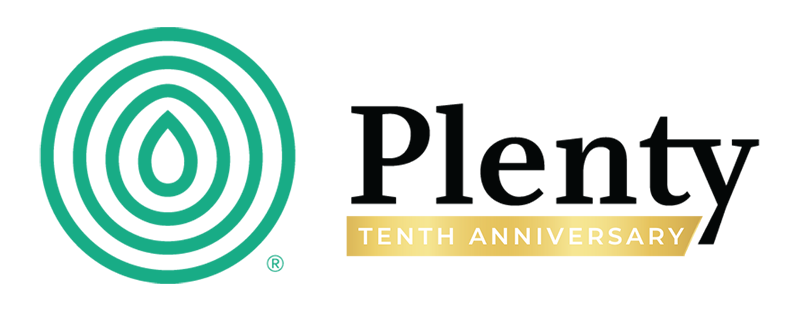Your Budget is Bullsh*t.
You know it. We know it. Your customers know it. Your vendors definitely know it. Your donors know it. Your board might be whispering about it, but they probably know it too.
At this point,
your budget is bullshit
.
The sooner you accept this fact, deposit it in the trash can, and start over, the sooner you will find your way to a better year.
And yet, after a month of stay-at-home orders, 20 million people filing for unemployment, 600,000 cases of COVID-19 (and climbing), the steepest drop in retail sales on record, and an IMF forecast that predicts a massive 3% decrease in global output for the year, we still see leaders and clients struggling and scrambling to salvage their forecasts and plans for the year.
Pivot? Sure. Recreate? Definitely. Transform? A must.
But adjust? Nope. We’re way past the point of
“adjusting.”
At a time when news is coming fast and furious, but the world is inviting us to literally SLOW DOWN and STAY AT HOME, the whole idea of "adjusting" in and of itself is kind of fruitless.
It’s hard to hear, but you can’t see what’s coming next. Neither can we. We’re living through a Grand Lesson in YOU JUST DON’T KNOW.
By way of background, we have a strategic process called Meridian that we designed to help conscious leaders
and organizations
build strategy that is flexible and adaptable. It’s a fairly different process than what most people are used to when they think of strategy. Most of what is called
“strategy”
we would instead call
“documentation.”
Strategy isn’t about going into a boardroom and writing a long PowerPoint document. It is about picking a few things to focus on, things that are connected to what your constituents need, what you love, and what you are uniquely positioned to provide.
And then, strategy is about focusing on the substance of those things while being agile when everything else goes haywire. It's also
choosing to stop doing things that no longer matter.
At Meridian, we use a thought experiment to explain the difference between plans and life. It goes like this:
Pretend it is December 31, 2019. You’re celebrating, looking back on the past year and thinking about the most important thing that happened. Maybe it was a huge tragedy. Or maybe it was a huge success.
Now take yourself back to January 1, 2019. Did you know that big important event was going to happen? Did you anticipate it? Did you plan for it?
Most of the time, the leaders we work with answer, “N o .” It's pretty striking. Time and time again, we hear that the biggest, most important thing that happened to them during the year was entirely unexpected. We hear, “I got a huge client out of the blue and it transformed my business.” Or, “My dad was unexpectedly killed in a car accident.” Or, “I met someone and we got engaged three months later.” Or, “A competitor went bankrupt and we inherited all of their customers.”
Many of the most important events
that happen
are not
part of
our
plan. They come out of the blue (or so they seem) – and then we have to take advantage of them, or steer around them, or learn to live with them. Only then do they become part of the plan.
As conscious leaders, we need to be aware of what’s happening around us; purposeful about our values; and intentional about how we reconcile the two. What we don’t have to be great at is predicting the future. And it is foolish to think we can.
Our teams know this, often earlier than we do. They’re the ones talking with customers and donors and suppliers and vendors. They’re the ones with a real sense of what is actually happening. So they can see when we start to walk on slippery ground. They can sense if we’re trying to zig as the world is zagging. They know when we’re sticking our fingers into the air to take a guess.
Does this mean you shouldn’t look at past data and trends? Of course not. There’s lots of useful historical information you can use to guide you. But the trap is to think that the past data is a perfect representation of what is going to happen next.
In times like these, there’s a fine line between being a great captain and being Captain Ahab. Be optimistic? Sure. Paint a positive vision? Of course. But trying to pretend you can see the sun during a
hurricane
isn’t going to help your team navigate through change.
Your budget is bullshit right now. Your team doesn’t need you to adjust it down 10%, and they sure as hell don’t need you to say,
“We
have to hit our goal no matter what.” They might need you to say what is true:
“
We’re
living through an unprecedented time. We don’t know what is going to happen next. Let’s take it day-by-day and week-by-week, together.
”
This doesn’t mean letting go of the wheel. It means being conscious of what is in your control and what isn’t.
What’s out of your control:
- The size of the government stimulus
- The depth of the recession
- The length of the stay-at-home order
- The buying habits of your customers
- The giving habits of your donors
- When large events and gatherings will be possible again
What’s in your control:
- Being present to see what you can see. What is, now?
- Questioning your assumptions. Are they true?
- What you spend. What costs, expenses, and investments are really necessary right now?
- Deeply listening to the needs of your staff, your team, your board, and your community. What do they need from you?
- Expressing gratitude towards your constituents, customers, and donors. How can you say thanks?
- Examining what you had been doing. What were you doing that doesn’t work anymore?
- Trusting your knowing. What does your gut say?
- Timing your decisions. Do you really need to act now, or can you wait?
- Measuring your success. Do your previous metrics matter anymore?
The Great Pause is here. It’s not a short-term hustle. More than ever, we’re being asked to slow down and play the long game.
What seeds do you really want to plant? What do you want to make of this in-between time?
We explore all of these themes, and a lot more, in the following video. Thanks for watching.
You've got this. And if we can help, we'd love to.
Share this
You May Also Like
These Related Stories
Episode 32: Awakening to Humility


Episode 32: Awakening to Humility
June 17, 2021
1
min read
In A World of AI, Your Innate Intelligence Is Needed More Than Ever


In A World of AI, Your Innate Intelligence Is Needed More Than Ever
January 26, 2023
2
min read
Back To School


Back To School
September 17, 2020
1
min read


Comments (8)